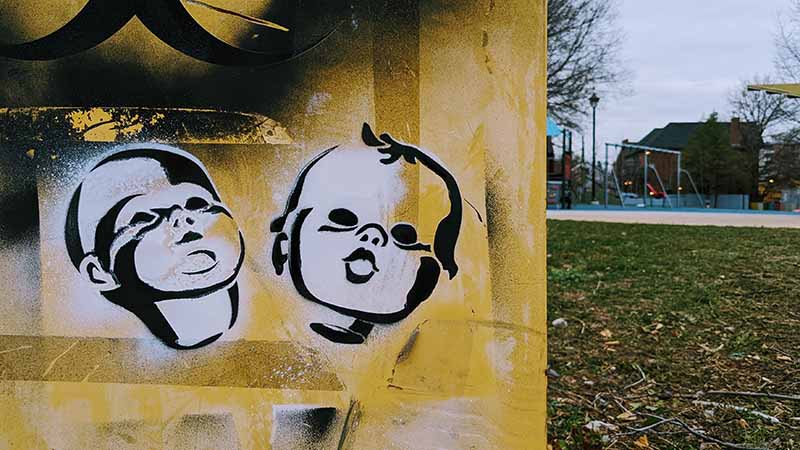Our conversation with Dr. Walter Kohan emerged from a conference that he had convened alongside colleagues at Center for Philosophies and Childhoods of the Rio de Janeiro State University on the theme of study that Fikile attended. The conversations and facilitated place encounters (what Walter describes in the interview as errant exercises) in the conference struck Fikile as highly pertinent to the work of a pedagogist. For instance, we engaged in practicing and co-theorizing study as collective, relational and improvisational – in relation with human and more than human co-participants. We engaged in place encounters that provoked dialogues on the “where of study” including the mattering of place, time, space, slowness, movement and their affective resonances in collective study. The conversation with Walter included in this issue also takes up how questions of context, time and movement are inherent to study; including in holding possibilities to resist current neoliberal and neocolonial conditions of life both within and beyond institutional contexts. In this discussion, Walter provides us with thought provoking orientations for the mattering of study in working as pedagogists concerned with early childhood pedagogical orientations that imagine, enact and nurture more livable, relational worlds alongside early childhood educators.
The conversation between Dr. Kathleen Kummen and Barbara Pytka – who are both immersed in pedagogist work within the context of the education of future early childhood educators – shares resonances with Walter’s interview in that both are concerned with noticing the ways in which current neoliberal conditions impact education. The authors speak to the striations of conceptualizing educational study through a focus on measures, assessment and productivity. Kathleen and Barbara speak to this specifically in relation to pressures faced by college professors seeking to undertake in-depth pedagogical work with future early childhood educators amidst neoliberal constraints. This conversation is an important reminder that pedagogists’ work necessitates navigating the complexities and contradictions of becoming a subject within conditions marked by hyper-individualization of systemic conditions. What might become possible from carefully attending and responding to responsibility, desire, and anxious subjectivity (de Lissovoy, 2018) as onto-epistemologies that intimately shape pedagogical work with early childhood educators?
Lindsay Sparkes’, a pedagogist with the Pedagogist Network of Ontario, article in part speaks back to the preceding question within the situated context of a pedagogical inquiry on food waste. The article makes visible the work of a pedagogist in supporting educators in situated food waste curriculum-making that enacts a turn away from neoliberal individualized, human-centric responsibility and consumptive desire in waste relations (see also Pacini-Ketchabaw & MacAlpine, 2022 ). Important aspects of this interruptive immersion in waste relations include paying attention and responding collectively where children, educators, food, critters and more are all active participants. It is also interesting to notice the multiple ways in which this article intersects with Walter ’s theorizations of temporality, childhoods and study (see our conversation in this issue). For instance, Lindsay writes about pedagogical engagements with interconnected human/more-than-human temporalities that involve slowing down and attuning to children’s affective relationalities. Perhaps then this work at London Bridge Children’s Centre, as narrated by Lindsay, shares resonance with expansive understandings of study that embrace multiple inter-disciplinary, planned, emergent and speculative forms of knowing and becoming-with human and more-than-human relations.
The final article in this issue is a conversation between three pedagogists with the Pedagogist Network of Ontario, Gabrielle Warren, Danielle Wittick and Lisa Johnston on the material-discursive complexities of enacting and conceptualizing care as pedagogists in early childhood education contexts. This discussion touches on many important considerations. For instance, it underlines how discourses of professionalization can commodify care, and points to the importance of viewing care in expansive ways beyond individual acts. The expansive view of care that Gabrielle, Danielle and Lisa share includes foregrounding mutual constellatory relations, of which the more-than-human is an intrinsic part. Importantly the conversation reminds us that early childhood education is also a space at which to notice and collectively respond to organized abandonment (Gilmore, 2020) under current neoliberal, colonial and capitalist conditions. They ask, for instance, how might the work of an early childhood pedagogist engage with an orientation that resists reproducing colonial care? What might it look like to work alongside refusal as a form of care or to enact, as Christina Sharpe (2018) reminds us, care as shared risk? We see these questions, alongside all of the offerings in the issue, as generative openings for situating pedagogist work within current challenging times – times that demand both deep study and collective response.
